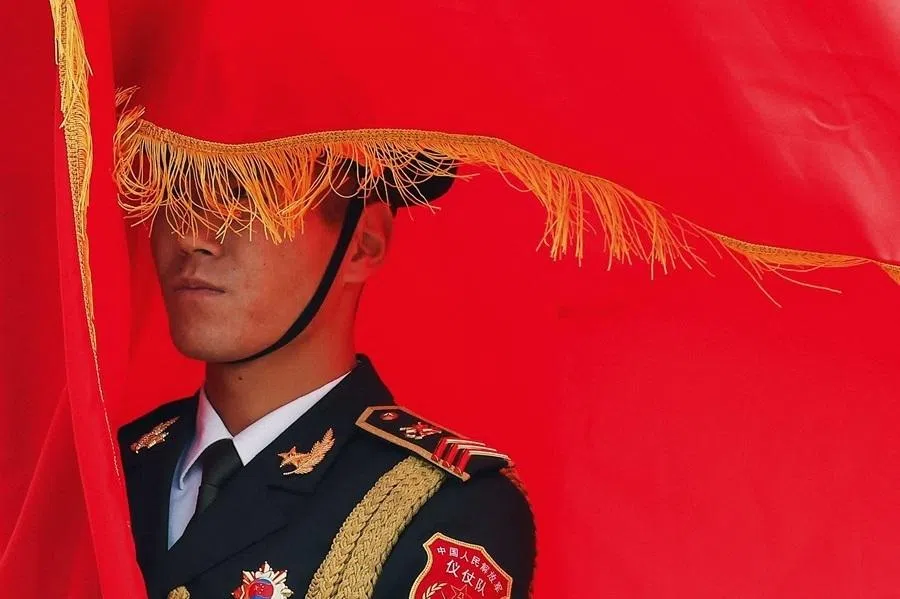Chinese tuition industry makes comeback after three years of restrictions
Lianhe Zaobao journalist Li Kang looks into the seeming resurgence of China’s tuition industry, which is making a comeback after the government clampdown under the “double reduction” policy in 2021.
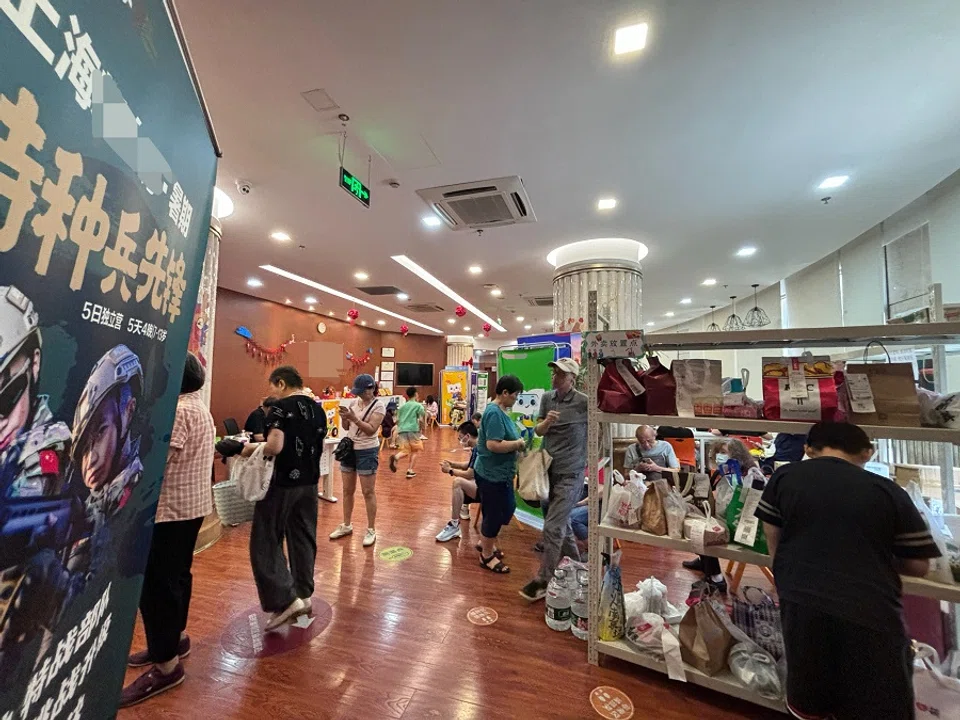
Somewhere along Shanghai’s inner ring road, a nondescript five-story building bustles with parents and food delivery personnel, all making a beeline for the third floor. As soon as the noon bell rings, the entire space is filled with the sounds of children playing and parents calling out.
Yes, this is a tuition services centre. There are no signs outside the building, only an inconspicuous sign next to the elevator that quietly directs parents to where the children are having their classes.
It has been three years since the Chinese government introduced the “double reduction” policy to reduce the burden of excessive homework for its primary and secondary school students, and to shut down for-profit off-campus tuition centres.
According to a follow-up report on the policy that was published by the Chinese State Council in 2022, the number of offline academic training companies or tuition centres catering to students who are receiving compulsory education fell sharply by 96% from 124,000 to 4,932 across the country as the industry plunged into dormancy. This summer, China’s tuition industry is making a quiet comeback as parental demand remains firm and local governments urgently need to boost consumption.
... many of these red-hot summer courses have been branded as personal development courses to conceal their academic tutoring purposes. For example, “logical thinking” instead of mathematics classes...
Parents left disappointed by red-hot demand for summer classes
Lianhe Zaobao visited several education and training companies in Shanghai recently and found that summer courses for primary and secondary school students are very much in demand this year. At two large companies, summer classes were full and disappointed parents could only wait for the upcoming autumn semester.
Private individual tutors have also been unable to keep up with the demand. Liu Xiaoyun (pseudonym), a 32-year-old who runs an English language training centre in Jiangsu, told this reporter that despite hiring two additional teachers to cope with the doubling in students, some students could not be scheduled.
However, this reporter also found that many of these red-hot summer courses have been branded as personal development courses to conceal their academic tutoring purposes. For example, “logical thinking” instead of mathematics classes, “humanities” or “liberal arts” instead of language classes, and “language classes” or “storytelling sessions” instead of English classes.
In an interview with Lianhe Zaobao, Wang Bin (pseudonym), a 34-year-old property agent whose son is in primary six, said that Shanghai parents are familiar with such “fancy names” by tuition centres.
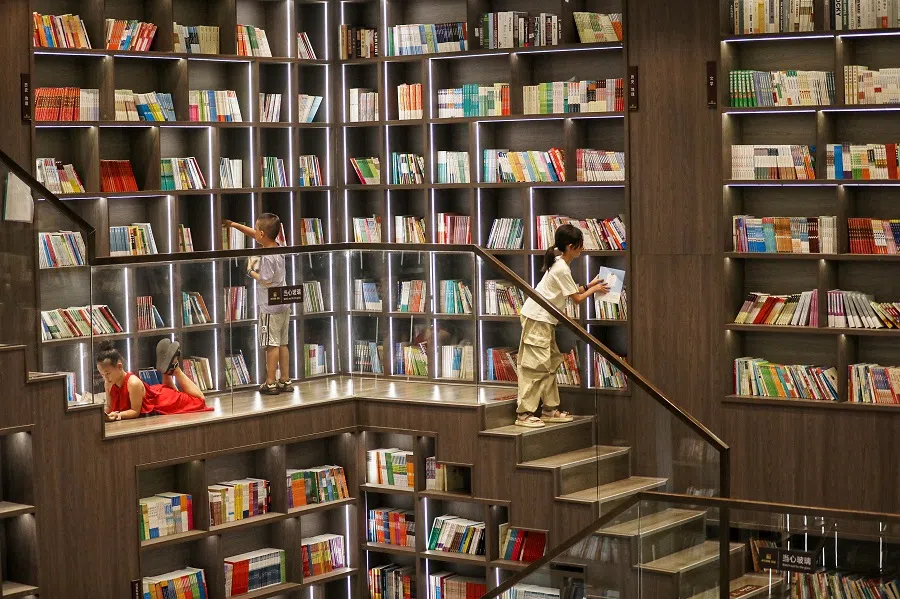
Looking at the financial reports of major tuition providers in China, many of their figures have improved. On 31 July, the New Oriental Education & Technology Group released its latest financial results: the group’s schools and learning centres increased by 277 year-on-year, while its revenue from new education businesses increased by 50.3% year-on-year. At the same time, its enrolment for non-academic training increased by 146% from the previous fiscal quarter to 875,000.
Other education and training companies with high market capitalisation, such as TAL Education Group, Xueda Education Group,and Only Education Group, also reported performance growth of 35% to 50%.
... academic training in Shanghai has “never stopped”, only done under another name or format, or gone from in-person to online. — Ms Wang, an employee at a foreign company in Shanghai
Tuition never stopped, small-group classes more expensive
The parents interviewed were frank in saying that despite the ban imposed on off-campus academic training three years ago, many parents came up with various ways to send their children for small-group tutoring, and ended up paying more than at education and training centres or tuition schools.
Wang Bin’s son goes for English tuition at a private tutor’s house. As far as he knows, most parents send their children for tuition in at least one to two subjects. Separately, Ms Wang, an employee at a foreign company in Shanghai, sends her daughter, a primary five student, for small-group language lessons.
When interviewed, Ms Wang said that academic training in Shanghai has “never stopped”, only done under another name or format, or gone from in-person to online. She said that even if parents do not take the initiative, teachers would also hint to parents to arrange for extracurricular training if their children are lagging behind, because “class results are part of a teacher’s performance evaluation”.
As for tuition fees, Wang used to pay only 100 RMB per lesson when her daughter attended a big class; now she is paying 400 RMB — three times more — for her to attend small-group tuition.
In line with its “double reduction” policy, Chinese authorities introduced pricing guidelines for off-campus academic training back in 2021 and allowed local governments to decide on the tuition fees. In Beijing and Shanghai, the standard fee for online courses was 20 RMB per student for each 30-minute block.
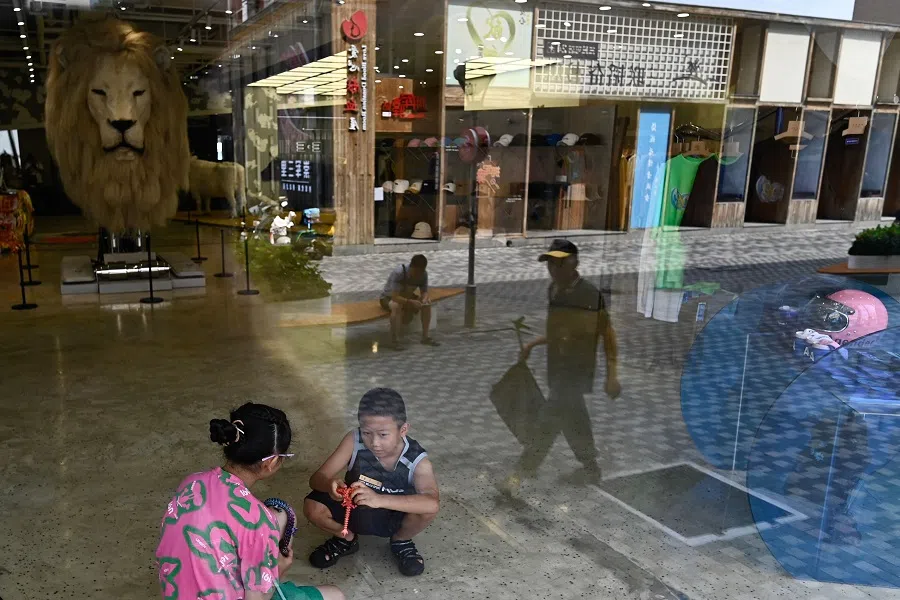
However, Lianhe Zaobao found that current fees are far higher. For two-hour lessons in groups of up to 35 students, each student can pay up to 250 RMB. For groups capped at eight students, this can be as high as 440 RMB. Generally, the smaller the class size, the higher the fees.
Other than market demand, China’s environment at large is another reason why its tutoring services industry is warming up again.
As long as parents do not whistle-blow, no disputes over fee refunds arise, or the media does not cover the story... the authorities are likely to “keep an eye closed”. — Xiong Bingqi, Director, 21st Century Education Research Institute
Correction of one-size-fits-all policy
Liu Xiaoyun, who runs a tuition centre in Jiangsu, said that education authorities there previously said that restrictions on the industry would be “loosened in July”. A course consultant at an education and training company in Shanghai also told this reporter over the phone that “the government is slowly letting go”. Another tuition company claimed to “know how to cope with government policies” and that it is able to learn the latest developments in Beijing beforehand, and halt its courses in advance.
In an interview with Lianhe Zaobao, Xiong Bingqi, director of the 21st Century Education Research Institute, pointed out that some local education authorities have adopted an attitude of tacit consent to satisfy the demand of parents for academic tutoring and after taking into account factors like the economic climate. As long as parents do not whistle-blow, no disputes over fee refunds arise, or the media does not cover the story, Xiong said that the authorities are likely to “keep an eye closed”.
On 3 August, the State Council published a set of “20 measures” to boost services consumption in China. Education and training consumption was among those earmarked for improvement. Vocational training, social training, and non-academic after-school services for the public good were identified as priorities, but there was no mention of academic tutoring.
Fu Fangjian, an associate professor at the Singapore Management University (SMU) Lee Kong Chian School of Business, told Lianhe Zaobao that the “double reduction” policy from three years ago may have been implemented too broadly, resulting in problems. The government’s loosening of restrictions on most aspects of education and training consumption in its “20 measures” can be seen as a correction of the one-size-fits-all policy.
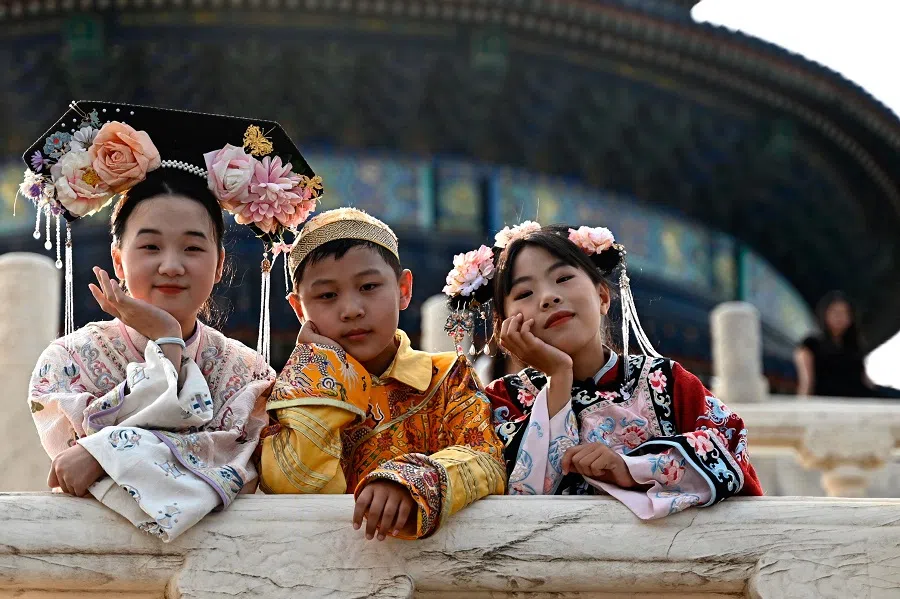
Fu pointed out that there was no mention of academic education and training in the “20 measures”, which shows that the government is not willing to sacrifice its original intention to clamp down on the industry for educational equity in exchange for job creation.
... “not controlling is the government’s way of letting go”, and so long as there is demand, companies would sprout up. — Chen Bo, Chinese economist, Liaoning University
No impetus for local governments to clamp down
However, some analysts felt that while the government will not publicly reverse its “double reduction” policy, the current economy has provided the education and training industry with the right conditions for a comeback. The biggest problem the Chinese economy faces at the moment is inadequate domestic demand, and the sector has an important role to play in boosting spending.
Given the overall state of the economy and market confidence, local authorities in China are under pressure to ensure stable growth and keep unemployment low, so they no longer have the same impetus they did three years ago to clamp down on the tutoring industry.
Chen Bo, a Chinese economist and distinguished researcher at Liaoning University, told Lianhe Zaobao that “not controlling is the government’s way of letting go”, and so long as there is demand, companies would sprout up.
Another observer noted that when it is unclear if a policy is beneficial or not, and enforcement is tough, it is better to let go first and then adjust administratively. “The worst-case scenario is to declare it illegal yet condone its practice, resulting in selective enforcement and widespread opportunism.”
This article was first published in Lianhe Zaobao as “经济不振需求不减 “双减”三年后中国教培行业重出江湖”.



![[Big read] When the Arctic opens, what happens to Singapore?](https://cassette.sphdigital.com.sg/image/thinkchina/da65edebca34645c711c55e83e9877109b3c53847ebb1305573974651df1d13a)

